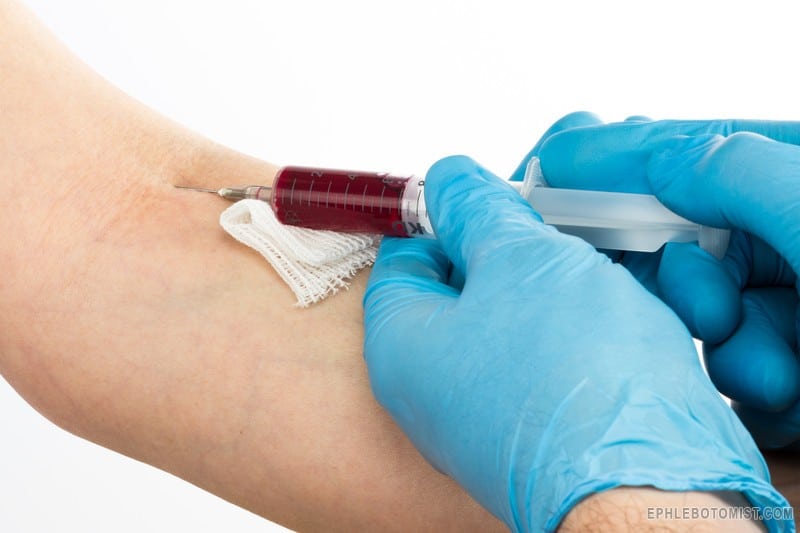Unlock Your Healthcare Career: How Community College Phlebotomy Programs Can Jumpstart Your Future
Are you considering a career in healthcare but unsure where to begin? One of the most accessible and rewarding pathways is through community college phlebotomy programs. These programs serve as a gateway into the healthcare industry, equipping you with vital skills and certifications to start working in medical laboratories, hospitals, clinics, and blood donation centers. In this comprehensive guide, we’ll explore how community college phlebotomy training can accelerate your career, the benefits involved, practical tips for success, and inspiring real-life stories.
What Is Phlebotomy and Why Is It a Great Entry point in Healthcare?
Phlebotomy involves the skilled collection of blood samples from patients for testing, donation, or further medical analysis. Certified phlebotomists are in high demand across various healthcare settings, offering a crucial service that directly impacts patient care.
- High demand in healthcare: Hospitals, clinics, laboratories, and blood banks continuously seek qualified phlebotomists.
- quick certification process: Many community college programs can train you in as little as a few months.
- Flexible career options: Work in diverse environments, including outpatient clinics, mobile blood drives, and research labs.
- Foundation for advanced healthcare roles: Gain experience that can lead to careers like medical assisting, nursing, or laboratory technology.
Why Choose a Community College Phlebotomy Program?
Community colleges provide an affordable, accessible, and high-quality education for aspiring healthcare professionals.Here’s what makes these programs a smart choice:
- Cost-effective training: Lower tuition fees compared to universities, with financial aid options available.
- Hands-on clinical experience: Practical training with real patients under supervision, building confidence and competence.
- Certificate accreditation: Most programs offer nationally recognized certification, boosting your employability.
- Flexible class schedules: Evening, weekend, or part-time classes accommodate working students or those with other commitments.
- Community support and networking: Build connections with instructors and healthcare professionals in your area.
Step-by-Step Guide to Enrolling in a Community College Phlebotomy Program
- Research local community colleges offering accredited phlebotomy training programs.
- Check admission requirements, which typically include a high school diploma or equivalent and immunizations.
- Complete the request process and submit required documents.
- Enroll in the program and attend classes-both theoretical and practical training.
- Pass the required exams, including the national certification exam (such as CPT or NBPT).
- Begin your job search,leveraging college connections and job placement assistance.
Understanding Phlebotomy Certification and Licensing
While requirements vary by state,most employers prefer or require certification from recognized agencies like the National healthcareer Association (NHA) or American Society for Clinical Pathology (ASCP). Completing a community college phlebotomy program typically prepares you for these certifications.
| Certification Type | Requirements | Validity |
|---|---|---|
| NHA Certified Phlebotomy Technician (CPT) | Complete approved training + pass exam | 3 years |
| ASCP Phlebotomy Technician Certification | Training + clinical experience + exam | 5 years |
| State Licensure (varies by state) | Some states require licensure besides certification | Varies |
Benefits of Completing a Community College Phlebotomy Program
Career Advancement Opportunities
Starting as a certified phlebotomist can serve as a stepping stone towards more advanced healthcare roles such as laboratory technician, nurse, or medical assistant. Plus,many employers offer tuition reimbursement for further education.
Job Security and Competitive Salary
The healthcare sector is resilient, offering stable employment opportunities. According to the U.S. Bureau of Labor Statistics, the median annual wage for phlebotomists was approximately $36,000 in 2022, with some experienced professionals earning more.
Contributing to Patient Care
Phlebotomists play a vital role in healthcare by ensuring accurate test results, contributing directly to diagnoses and treatment plans, and providing compassionate patient care.
Practical Tips to Maximize Your Success in a Community College Phlebotomy Program
- Engage actively in hands-on training: Practice venipuncture skills diligently and seek feedback from instructors.
- Prioritize patient interaction skills: Building rapport with patients eases fear and improves sample quality.
- stay organized: Keep track of clinical hours, certifications, and deadlines.
- Network within your program: Connect with classmates, instructors, and healthcare professionals for future job opportunities.
- Plan your career path: Explore opportunities for specialization or further education right from the start.
Success Stories: Real-Life Examples of Community College Phlebotomy Graduates
Maria’s Journey from Student to Healthcare Professional
Maria enrolled in a community college phlebotomy program after considering various healthcare careers. She completed her training in three months, earned her certification, and secured a position at a local hospital. Within a year, she advanced to a supervisory role, overseeing other phlebotomists and expanding her skills to include laboratory assistance. Her story exemplifies how accessible education and dedication can truly jumpstart a healthcare career.
James’s Path to Specialization
James started as a phlebotomist after finishing a community college program.His experience motivated him to pursue further studies in medical laboratory technology,opening up new roles in diagnostic labs. His proactive approach highlights the importance of leveraging community college programs as a foundation for growth.
Conclusion: Launch Your Healthcare Career Today
getting started in healthcare doesn’t have to be complicated or costly. Community college phlebotomy programs offer a practical, efficient, and fulfilling pathway into the industry. Whether you’re looking for a quick entry into a stable career or a stepping stone toward advanced healthcare roles, training in phlebotomy can unlock numerous opportunities for you. Take the first step today-research local programs, prepare for certification, and begin your journey toward making a real difference in patients’ lives while building a rewarding career foundation.
